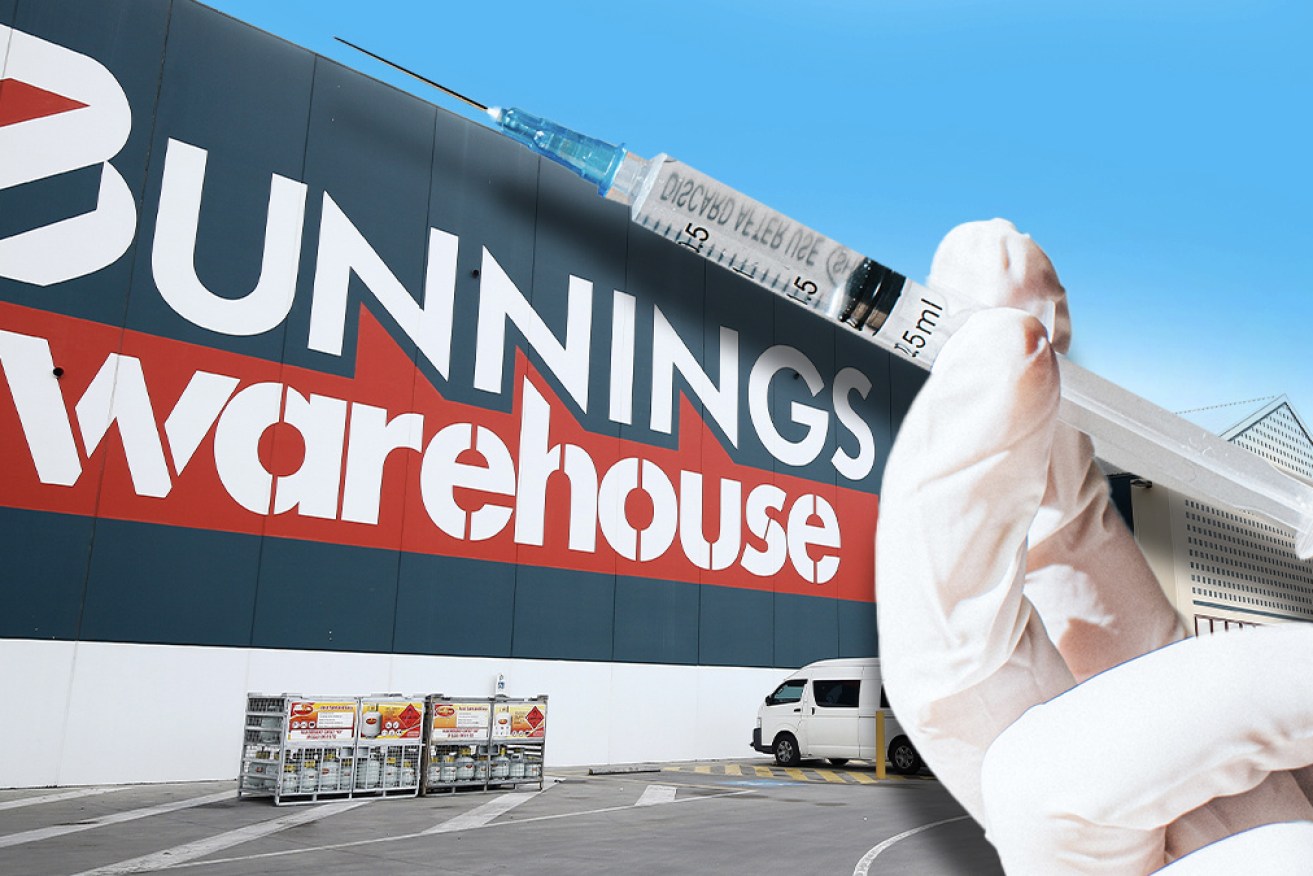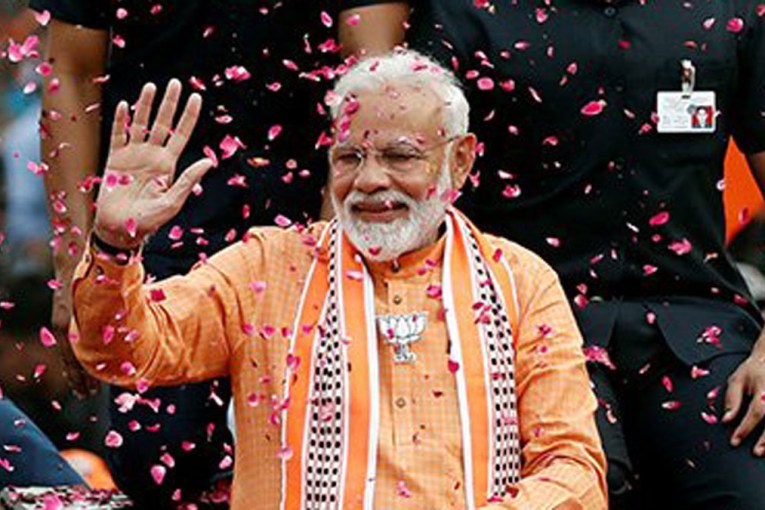Bunnings, pubs want to give vaccines, as businesses finally brought into jab rollout


Image: TND
Australians could soon walk away from Bunnings with a snag and a jab, with the hardware giant telling the federal government it wants to turn its stores into vaccine hubs to speed up the COVID rollout.
Pubs and shopping centres would also be turned into vaccine sites, while other companies could offer incentives to customers, under proposals from leading employer groups.
But despite numerous novel suggestions from business leaders about how to finally kick the vaccine program into high-gear, it could be some time before this becomes a reality, with everything dependent on millions of doses arriving from overseas, and no firm plan locked in.
“It has been subject to getting more supply online,” Treasurer Josh Frydenberg said on Wednesday, as to why the federal government has only now – nearly five months into the vaccine rollout – held its first meeting of this type.
“As more supply comes online, using businesses and their resources is going to be important.”

Josh Frydenberg and vaccine taskforce commander, Lieutenant-General John Frewen at Parliament House. Photo: AAP
CEOs from more than 30 leading Australian companies joined Mr Frydenberg and vaccine coordinator, Lieutenant-General John Frewen, at a business roundtable on Wednesday.
Coles, Wesfarmers, Virgin, Qantas, Commonwealth Bank and Telstra all attended, spitballing ideas for how big business could help get vaccines in arms.
Lieutenant-General Frewen said on Tuesday a major focus would be in-workplace vaccinations, run similar to annual flu jabs by large employers.
Wednesday’s meeting locked in no concrete proposals, but Mr Frydenberg said it would be “the first of a number” with business leaders. He said they discussed “very interesting and exciting ideas” like airlines providing frequent flyer points as incentives for customers to get a jab.
Overseas, pharmacies and supermarkets have delivered jabs, while car parks and sports arenas have been used as mass vaccination sites. But in Australia, due to lack of large supply of vaccines, the rollout has been largely restricted to hospital clinics and GPs.
The Australian Industry (AI) Group, representing employers, said airports, shopping centres, industrial parks and even pubs would be “very worthwhile potential vaccination sites.”
“AI Group stressed at the meeting that many businesses are eager to host workplace-based vaccinations when supplies are available,” chief executive Innes Willox said.
Business leaders have pleaded with government to be brought into the fold, arguing they can get their employees vaccinated in the workplace or use their resources to speed up the process. Mr Frydenberg said the government had been engaging with business on vaccines for some time, and that Wednesday’s meeting was about “accelerating” those talks.

Business leaders say pubs, airports and shopping centres should be used for vaccine hubs. Photo: AAP
“These businesses have real resources at their disposal, whether it is premises, logistics, community engagement strategies,” Mr Frydenberg said earlier in the day.
At an afternoon press conference in Parliament House, he was cagey on what exactly was proposed at the meeting by leaders, but shared a few possibilities that will be explored.
“There were many offers of premises for vaccinations being rolled out including from Wesfarmers that raise the opportunities that could be provided at the local Bunnings or Officeworks,” Mr Frydenberg said.
He said the Minerals Council was keen to reach into remote Indigenous communities to share pro-vaccination messages, while other businesses would use their communication databases to urge employees and customers to get the jab.
“Alan Joyce, CEO of Qantas, talked about how he has 13 million frequent flyers and over 22,000 workers,” the Treasurer added.
Virgin CEO, Jayne Hrdlicka, said her company was keen to support an ad campaign to fight “misinformation” on vaccines.
“What is also needed is a public education campaign, fuelled with information from around the world, to help people understand the safety and efficacy of each of the vaccine choices,” she said.
“There is too much misinformation and misguided fear around vaccination and it is time to fix that.”
Incentives like frequent flyer points may be offered further down the track, Lieutenant-General Frewen said, in a bid “later in the year” to reach those who might remain hesitant about vaccination.
“I think it is more than a snag at Bunnings that we are talking about,” Mr Frydenberg joked.
“But the timing mark of those incentives are very important.”
Overseas, businesses have offered free beer, recreational substances or lottery tickets in a bid to boost vaccine numbers.
But such things won’t be offered in Australia until supplies increase by several million, as expected in coming months. The federal government is sweating on tens of millions of Pfizer and Moderna to doses to arrive in the final quarter of 2021, so it can offer every Australian a vaccine by Christmas.
But with Australia wholly depending on overseas supply shipments, with neither mRNA vaccine able to be made here, the government has stopped short of a firm commitment. The early stage of the rollout was hamstrung after supply issues and export blocks from Europe.
“We continue to secure as much supply as we can and do have some discussions with those major companies,” Mr Frydenberg said.
“We did not receive as much as other countries in more emergency situations were, but we know the supply is coming online in very significant quantities.”








